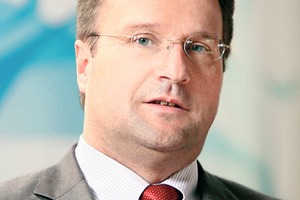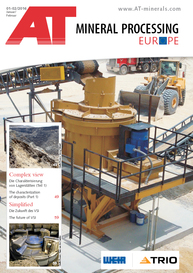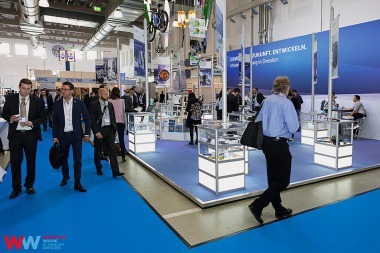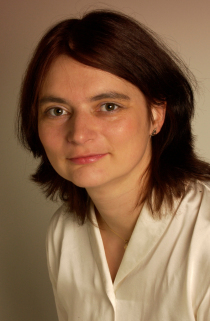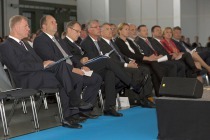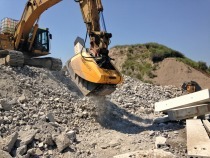“We brought the Materials Week to the present time”
Dr. Brigitte Hoffmann in conversation with Dr. Frank O. R. Fischer, Managing Director Deutsche Gesellschaft für Materialkunde (DGM) (German Materials Society):
AT: In September 2015, it was for the first time that the Materials Week was held in Dresden. Are you satisfied with the response?
Dr. Fischer: Absolutely. To be honest, with altogether more than 1,800 participants, we are highly satisfied. The feedback of the visitors was collected through interviews and feedback questionnaires. The overall rating reached a 2+, so there is still room for further improvements.
AT: What is the idea behind such an event and to what extent have you been led by the historical example?
Dr. Fischer: We got inspired by the former Materials Week, which in 1927 was still called Werkstoffschau, and transposed it to modern times. I myself have been in Leipzig several times to research how it was at that time. The present approach of the Materials Week is aimed at applying the insights of basic and applied research as quickly as possible. Because ultimately, it is the quality of the material that decides on the success of a product. Successful products decide on the success of the industry. And successful companies decide on the prosperity of a society. Hence: materials = prosperity. That’s what we work on with the Materials Week.
AT: Which key areas were paramount for the content alignment of the Materials Week and why did you select these thematic focuses?
Dr. Fischer: Construction and functional materials were at the center of the event, and, in addition, process technology, such as continuous casting and rolling. That doesn’t sound sexy - but, in fact, it is. In this area, German research institutions and companies are world class. Therefore, to enable the exchange between these research institutions and the companies, a platform is required. The Materials Week seems to be a suitable means.
AT: Is it conceivable that in future, the focus will be more on recycling of metals and material compounds, in particular as at the opening ceremony, Harald Kröner, President of the Metal Trade Association, called “Urban Mining” the resource of the future?
Dr. Fischer: The topic of resource efficiency is at the top of the list – always and everywhere. On behalf of the BMBF, we, as DGM, coordinate the funding initiative “Mat‑
Ressource – Materials for a resource-efficient industry and society” within the framework program “WING – material innovations for industry and society”. The Materials Week featured a MatRessource Forum with first results from the funding initiative ($(LEhttp://). Another forum on this topic is planned for 2017. You see, the topic is extremely important for our area of expertise. Without the availability and the careful use of metals, there will be no prosperity in our society.
AT: How do you assess the future development of the Materials Week? In future, the Materials Week will take place periodically; what intervals do you have in mind?
Dr. Fischer: In 2017, the Materials Week will again be co-organized by the Stahlinstitut VDEh und the DGM. With this, the key players of all classes of materials support the Materials Week. With the Materials Week, we intend to not only establish a platform for the professional exchange, but in particular a trade fair for “Materials for the Future”. Because all challenges of the future (mobility, health, climate, energy etc.) can only be met with better materials. Currently, we plan a biennial rhythm. Already today, it is certain that the next Materials Week from 27. to 29.09.2017 will again take place in Dresden.
AT: Based on this year’s experience, which aspects will be given more priority at future events?
Dr. Fischer: In 2017, apart from the trade fair “Materials for the future“, in particular workshops to answer the questions of the industry will contribute to make the Materials Week even more attractive.

